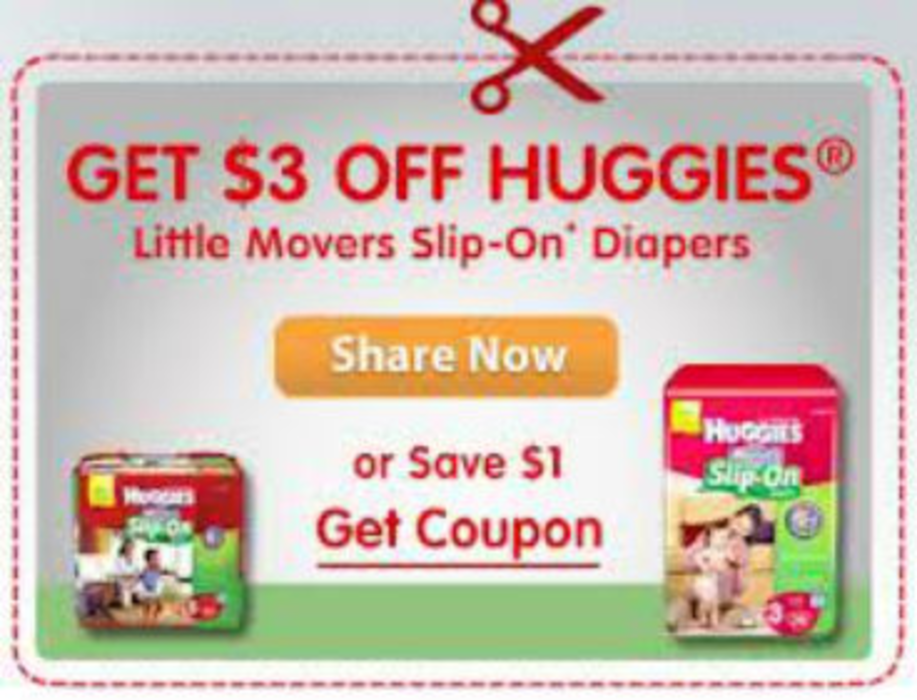Marketers will like social media more once they’re able to figure out how all the likes at the top of their sales funnels turn into sales at the bottom. Or they could do what Kimberly-Clark’s Huggies brand did and enlist moms to take to Facebook and Twitter to help drive offers and sales—oh, and personal contact information—through the funnel on their behalf.
Kimberly-Clark recently released results on a Huggies promotion it ran in spring that made novel use of social media. The brand promoted offers via email and on its Facebook page and website for $1.50 off any package of diapers. Interested parties could print out the coupon and go, or they could click a button, share the offer with three friends and instead receive a $3 coupon for their trouble. More than 600,000 people took Huggies up on the offer, and two thirds of all visitors to the offer page printed a coupon. According to Kimberly-Clark, the open rate and the click-through rate on email referrals was 56%, and the company estimated that it reached 3.5 million new consumers through the campaign.
“Every metric was higher than anything we’ve seen in other digital programs,” said Kimberly-Clark Shopper Marketing executive Dan Kersten in a press release announcing the results.
More interesting to direct marketers, perhaps, is the fact that Kimberly-Clark was able to track all the offer-takers. “As soon as the consumer presses the ‘share’ button and gets to the landing page, they’re given several ways to share it. They can post it, tweet it, email it–all with a branded message,” says Vijay Sundaram, head of marketing and sales for Social Twist, the company that deployed the promotion for Huggies. “No matter what route they use to get to the microsite, we know who they are, who referred them, and whom they referred, so we can identify the biggest influencers. We can apply conventional marketing metrics to this.”
Takers of the offer had to supply their names and emails to link through to the microsite, allowing Kimberly-Clark to capture them and rank their levels of influence by the number of generations of their referrals. If, for instance, a consumer made the three referrals, one of her referrals did the same, and one of her referrals kept the chain going, that’s three generations.
“The Huggies promotion had some consumers who had five generations of referrals. That’s high, so the brand can say, ‘These people got 15 other people to engage in the brand and these people got six’ and they can segment them into groups of influence,” Sundaram says. “Social media gives brands a way to reach out to and hear from consumers, but brands don’t own the channel, so they don’t know who the consumers are. This is a way to find out who your most influential consumers are.”








